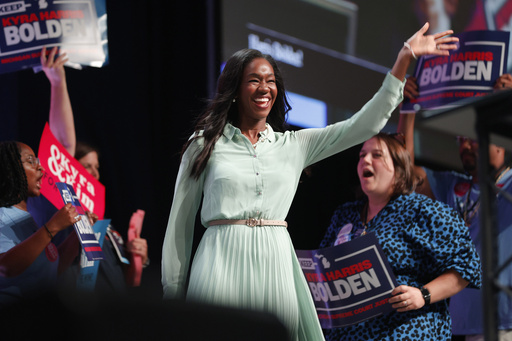DETROIT — Michigan Democrats and their supporters were working to maintain their majority on the state’s Supreme Court on Tuesday amid a highly expensive campaign season.
Although court races are officially nonpartisan, the candidates are selected at party conventions. Currently, Democratic-backed justices hold a narrow 4-3 advantage, with Republicans aiming to turn the tide and reclaim control in a state that has been significantly Democratic for the last two years. To achieve this, they must win both available seats in the election.
The four candidates focused primarily on marketing their professional backgrounds and qualifications through their campaign funding, while state parties and external spending groups took the lead in shaping the electoral issues.
On the Republican side, Judge Patrick O’Grady is running for the seat occupied by Justice Kyra Harris Bolden, who was appointed to the court in 2022 by Democratic Governor Gretchen Whitmer after an unsuccessful campaign for the position. Bolden holds the historical distinction of being the first Black woman on the bench and would make history as the first elected Black female justice if she secures the win. O’Grady has highlighted his extensive experience as a state trooper, prosecutor, and veteran circuit judge from southern Michigan. The victor will complete the remaining four years of an eight-year term left vacant by former Justice Bridget McCormick in 2022.
In another race, Republican state Rep. Andrew Fink is contending with Democratic law professor Kimberly Anne Thomas for a full-term seat being vacated by Republican-backed Justice David Viviano. Fink, like O’Grady, claims that his election is crucial for restoring balance to a court accused of “legislating from the bench” in favor of liberal agendas and Democratic policies in recent years.
Reproductive rights have emerged as a central theme in this election cycle, especially following the 2022 vote that enshrined abortion access into the state constitution. Democratic supporters have framed the judicial race as a battle over reproductive rights, asserting that the court could play a vital role in future abortion decisions. Conversely, Republicans have dismissed this viewpoint, contending that the amendment has solidified abortion protections that are irreversible.


